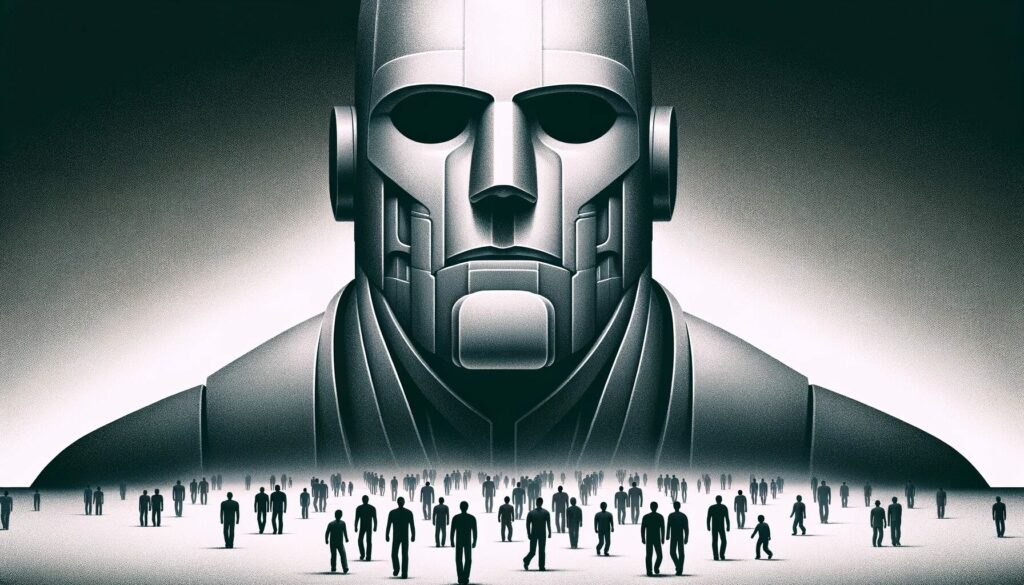Introduction
In the ever-evolving landscape of the tech industry, a paradoxical scenario has unfolded. On one hand, there are reports of massive layoffs, sending ripples of uncertainty across Silicon Valley and beyond. On the other, these very corporations are boasting record-breaking profits. This dichotomy raises a critical question: Are these layoffs a strategic move to bolster profits further by embracing artificial intelligence (AI) at the expense of human capital?
As we delve into this complex issue, it’s essential to consider all angles – from the cold logic of balance sheets to the human impact of corporate decisions. This exploration seeks to unravel the intricacies behind these layoffs, the growing role of AI like ChatGPT in the corporate world, and what it means for the future of employment in the tech sector.
Background on Tech Layoffs
The tech industry, once known for its stability and meteoric growth, has recently been marked by a series of layoffs that have left many questioning the sector’s direction. Major players in the industry, from established giants to emerging startups, have announced significant workforce reductions. These layoffs are occurring despite these companies reporting substantial profits, painting a confusing picture for both employees and industry observers.
Take, for example, Company X, which recently let go a significant percentage of its workforce. This move came just after the company announced record earnings in the previous quarter. Similar patterns can be seen across various tech firms, where layoffs are not necessarily a result of financial distress but appear to be part of a larger strategic realignment.
This trend raises several questions. Are these layoffs a response to market demands, a preemptive move in an unpredictable economy, or a strategic shift towards automation and AI? To understand this, one must look at the role AI is beginning to play in these organizations.
The Role of AI in Workforce Reduction

The advent of AI and automation technologies has introduced a new dynamic in the workforce. AI systems like ChatGPT are not just novelties; they are increasingly becoming integral to business operations. This integration of AI raises a pivotal question: Is the wave of tech layoffs a precursor to a future dominated by AI and machines?
The potential of AI to streamline operations and reduce labor costs is immense. For instance, AI can handle tasks ranging from customer service to data analysis, often more efficiently and at a lower cost than human employees. This efficiency makes AI an attractive option for corporations looking to maximize profits. However, it also puts a range of jobs at risk, especially those that are repetitive or data-intensive.
While the fear that AI will render many jobs obsolete is not unfounded, it’s also worth considering the new types of jobs and opportunities that these technologies could create. The shift might be less about replacing the human workforce and more about evolving it. However, this transition is not without its challenges and ethical considerations, particularly for those whose skills may become redundant in an AI-driven workplace.
Corporate Profitability vs. Employee Welfare

The intersection of corporate profitability and employee welfare is at the heart of the tech layoff debate. On one side is the argument that companies, in their pursuit of higher profits and shareholder value, are justified in leveraging technologies like AI to streamline operations. After all, corporations are bound by fiduciary duties to maximize returns for their shareholders. From this perspective, replacing costlier human labor with AI could be seen as a sound business decision.
However, this approach raises significant ethical concerns. It suggests a hierarchy of value where employee welfare is secondary to profits. The human cost of such layoffs is considerable, affecting not just the individuals who lose their jobs but also their families and communities. Moreover, it challenges the long-held belief in the tech industry as a progressive and employee-centric field.
This dichotomy begs the question: can there be a balance between maintaining profitability and ensuring job security and employee welfare? Or are these recent layoffs indicative of a broader shift in corporate ethos, where efficiency and profitability overshadow the human element of business?
Impact on Remaining Employees
The ramifications of tech layoffs extend beyond those who are let go. For the employees who remain, these changes can bring a mix of increased workload and uncertainty. The expectation to maintain, if not increase, productivity with a reduced workforce is a daunting prospect. This situation often leads to heightened stress and lower morale among the surviving staff.
In this context, AI is often touted as a solution to bridge the gap. The idea is that AI tools and automation can take over routine tasks, allowing the remaining employees to focus on more complex and creative work. However, the effectiveness of this approach is still a matter of debate. While AI can undoubtedly enhance efficiency in certain areas, it is not a panacea for all the challenges posed by a reduced workforce. The integration of AI needs to be thoughtfully managed to ensure it complements rather than overwhelms the human aspect of work.
Comparison with Global Layoff Policies
The approach to layoffs in the tech industry in the United States stands in stark contrast to practices in some other parts of the world. For instance, in Japan, there are stricter laws and cultural norms regarding layoffs. These laws often make it challenging for companies to dismiss employees solely for financial optimization. The emphasis is more on the long-term welfare of employees and less on short-term financial gains. This approach reflects a different set of values where employee stability and corporate responsibility are given greater importance.
Such comparisons highlight the varied approaches to workforce management globally. They raise important questions about the role of cultural and legal frameworks in shaping corporate behavior, especially concerning layoffs. While the U.S. model prioritizes flexibility and profitability, other models emphasize stability and social responsibility.
This global perspective invites a broader discussion on the ethical implications of layoffs and the role of corporations in society. As AI continues to reshape industries, it may be time to reevaluate these practices and principles, considering not just the economic but also the human impact of such technological and corporate shifts.




